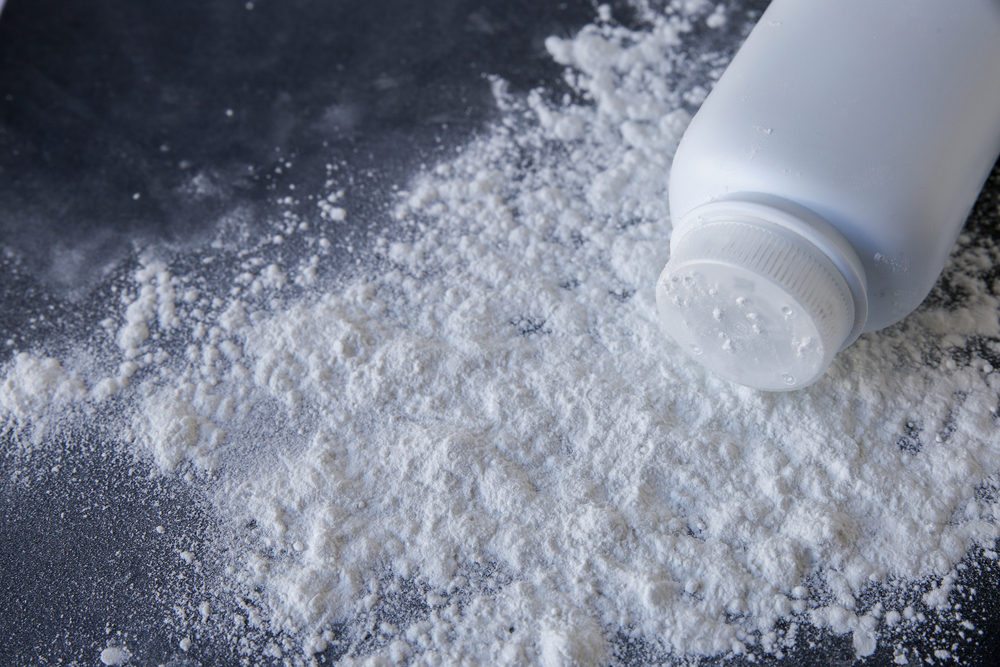With so many baby powder lawsuits filed against Johnson & Johnson over the last few years, you may be wondering - is it safe to use baby powder? Those who have used baby powder in the past on themselves or their children may wonder has this product put their lives at risk. As one may expect, the answer is complicated.
In April, Johnson & Johnson announced it set aside nearly $9 billion for a settlement associated with claims that J&J’s talc baby powder caused cancer in those who have used it. Initially, the company had set aside $2 billion for ongoing litigation associated with baby powder lawsuits. To date, more than 38,000 talc baby powder lawsuits have been filed against the pharmaceutical giant.
Johnson & Johnson Baby Powder Lawsuits
Of the more than 38,000 talc baby powder lawsuits filed against J&J, most are claims of wrongful death and illnesses from using talc-based baby powder. Due to the mining process, baby powder and several talc-based products may have contained asbestos. As asbestos is a known carcinogen, people who use talc-based baby powder could be at risk.
Those using baby powder may have inhaled quantities due to the fine nature of the powder. As the talc-based baby powder is released as fibers into the air, the person using the product could have inhaled the talc and asbestos. Once inside the body, virtually nothing can be done to rid the body of the highly carcinogenic asbestos fibers.
Those who used J&J’s baby powder have developed ovarian, lung, and other cancers, and many lawsuits claim that J&J knew of the toxic chemicals and continued to sell them while hiding the health risks from consumers who used them. J&J has stood behind its products while refuting the claims that it knew of the serious health risks. Several investigations have retrieved and reviewed documentation proving otherwise. Some of this documentation is over 25 years old.
J&J talc baby powder has been available on store shelves since 1980. In 2020, J&J announced that it was phasing out selling baby powder in the U.S. and Canada due to the drop in sales, which they claimed was due to “misleading talc litigation advertising that caused global confusion and unfounded concern.” Last year J&J announced that it would discontinue talc-based baby powder sales globally in 2023. The pharmaceutical giant maintains that their talc-based baby powder does not cause cancer.
What Do Experts Recommend About Baby Powder Use?
When discontinuing the talc baby powder, J&J announced it would replace it with a cornstarch-based baby powder. While cornstarch is a common ingredient in cosmetic products and is safer than talc, there may still be health risks. Inhaling cornstarch may also cause similar lung-related health risks as inhaling talc.
As people try to reduce the potential health risks of using baby powder, they have turned to experts to determine which options are the safest. Do experts recommend cornstarch-based baby powder in place of talc-based baby powder?
The American Academy of Pediatrics has advised against using talc-based baby powder since 1981. In a recent Time article, various pediatricians weighed in. Dr. Peily Soong, a pediatrician at Children’s Hospital of Alabama, shared that “anything that you inhale can irritate the lungs.” In babies with smaller airways than adults, inhaling cornstarch through diaper changes may cause lung challenges. There is also an elevated risk for adults. Inhaling any substance could impact your health.
Dr. Stanley Spinner, chief medical officer at Texas Children’s Pediatrics and Texas Children’s Urgent Care, suggests that cornstarch baby powder is a better option if you are set on using baby powder. “But in general it’s better to avoid all of them.”
If using baby powder, apply the baby powder to your hand and then apply the powder to the baby’s skin. This will reduce the potential risk of inhaling baby powder for you and your baby.
Dr. Soong goes a step further to discourage the use of all baby powders. If diaper rash is an issue, consider changing your baby’s diaper more frequently, letting the baby air dry before putting a clean diaper on and using a petroleum-based ointment on the diaper rash.
For adults, baby powder has long been used to protect the skin from moisture and moisturize the skin. You may use cornstarch baby powder for this purpose. However, other products are available to protect the skin without talc or cornstarch as an ingredient.
People have been using talc-based baby powder for years on themselves and their babies, unaware of the potential impacts. As investigations continue to release their research and conclusions on the connection between talc baby powder and cancer and other health risks, experts expect the number of lawsuits against Johnson & Johnson will continue to climb.










